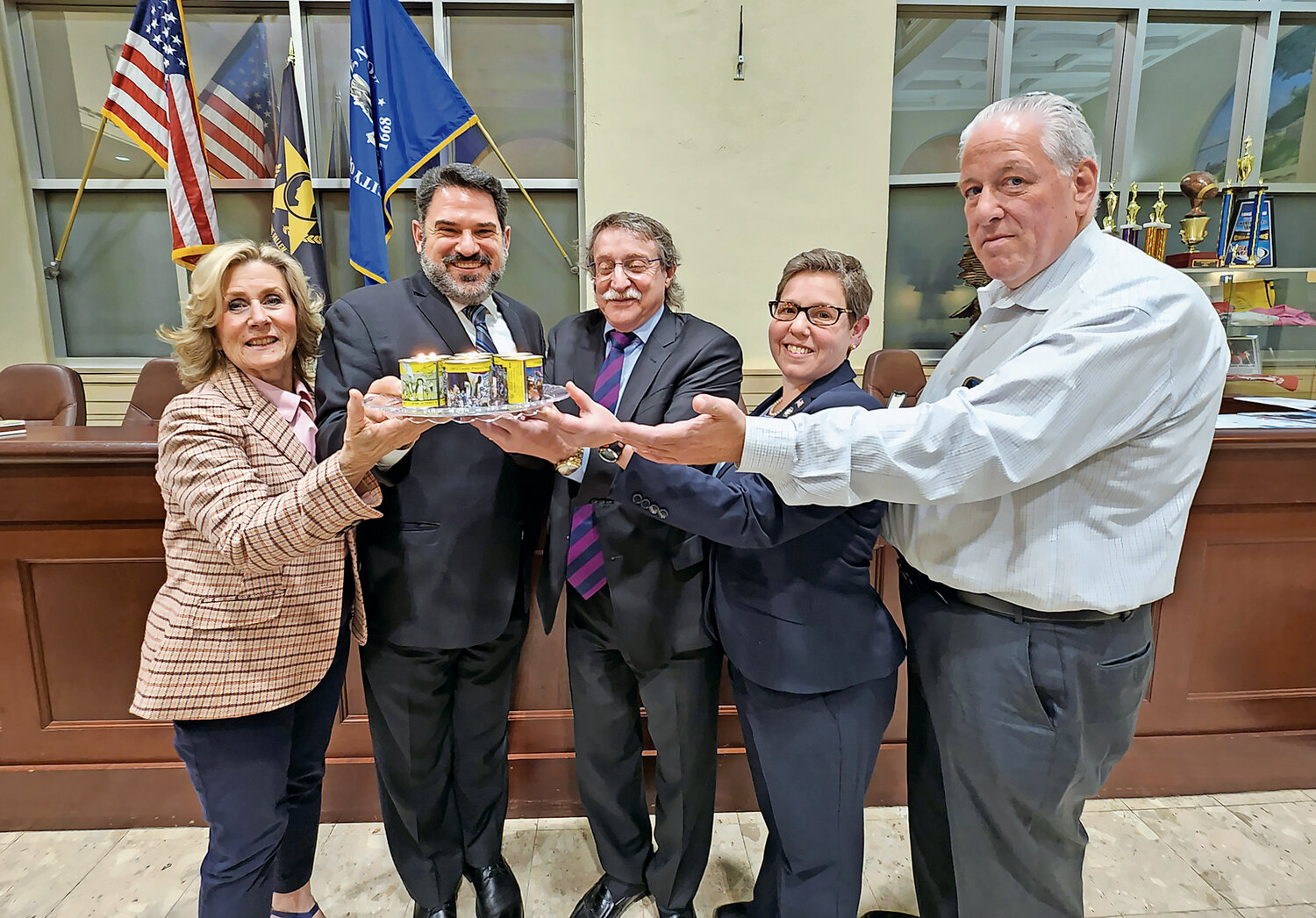Glen Cove officials hold first Holocaust Remembrance Day
On a typical evening, City Hall is abuzz with political discussions, and serves as a doorway through which residents, business owners and local leaders communicate with local officials. But on Monday night, the community gathered not to discuss zoning laws or pass resolutions. They were there for a more somber occasion — to reflect on Yom HaShoah, or Holocaust Remembrance Day.
Councilwoman Marsha Silverman, who spearheaded the event, partnered with Congregation Tifereth Israel and North Country Reform Temple to welcome Jews and non-Jews to come together to honor the millions of victims of the Holocaust.
Though Yom HaShoah is the national Holocaust commemoration date in Israel, it marks the beginning of the Warsaw Ghetto uprising of 1943, when a band of Jewish resistance fighters in the largest Nazi ghetto in World War II managed to defy their well-armed opponents. This month marks the 80th anniversary of that battle, which has become a powerful symbol of resistance. Yom HaShoah has taken on greater significance as antisemitism has been on the rise
“There is one word that encompasses all of human evil, and that is indifference,” Rabbi Michael Churgel, of North Country Reform Temple, said. “We must not remain passive; we must respond in defiance to anyone who declares either the Holocaust never happened or that it was just a misunderstanding.”
The Anti-Defamation League’s latest report shows hate-filled attacks and incidents against Jewish people hit a record high in 2022. New York state saw 580 anti-Semitic incidents, making it the highest in the country. A 39 percent increase from 2021, when 416 incidents were reported, and more than double from a decade ago. The state accounted for 15 percent of all documented antisemitic incidents in the United States in 2022.
Knowledge about the Holocaust, those who died and its survivors continues to diminish making gatherings like this event more important.
“Events like this are about bringing people together,” Silverman said. “It’s about educating people and ensuring that people understand while we may have differences in our diverse community, we all have a lot in common.”
To help keep the memories of victims alive, Glen Cove resident Rochelle Bordwin shared a letter written in 1945 by survivor Mishka Klein to his sister. The letter details Klein’s journey from his home country of Hungary to the Auschwitz concentration camp in Poland.
“They herded us together and pushed 70 people in a freight train, and they gave us one bucket full of water,” the letter read. “After a 72-hour trip, we arrived in the infamous Auschwitz, some of us dead, some of us half dead.”
In his letter, Klein detailed his time as a slave laborer at Auschwitz and his journey to two other concentration camps. He survived multiple close encounters to the camp’s gas chambers and was liberated by Soviet forces in 1945. He wrote about the heartache of surviving the death camps and the trauma he will carry through his life.
“I will be 50 soon, and my spirit is broken, one cannot describe what horrible things that happened to us here.” Klein wrote. “I always see in front of me the horrors of Auschwitz.”
After the emotional letter, the Rev. Roger Williams, of the First Presbyterian Church, offered his insight into how we should reflect on justice for victims, and how justice should be nurtured to be remembered.
“Justice is not just some idea or philosophy; justice is living,” he said. “Justice has to be nurtured, given sustenance in order to survive. I hope throughout our religious convictions, and the pure and simple decency of being a human being, will lead us to efforts to make sure that justice will never die.”
Rabbi Irwin Huberman, of Congregation Tiferith Israel, said he hoped the day would also give recognition to those who are still suffering from acts of hate, whether it is from war-torn countries or acts of discrimination. Huberman performed a song he wrote on his acoustic guitar, which was inspired by meetings with Holocaust survivors and their families. His song included Kaddish, the Hebrew prayer of mourning.
The evening concluded with lighting seven yellow Yarzeit candles, which are traditionally used to commemorate the anniversary of the death of loved ones. The yellow wax serves as a reminder of the yellow armbands that Jews were forced to wear during the Nazi regime.
“We have a responsibility that nobody is ever reduced to a number,” Huberman said. “Each one of these candles represents the six million who had hopes and dreams. We ensure that their spirits and memories remain in our minds and teach us for the future.”

 60.0°,
Mostly Cloudy
60.0°,
Mostly Cloudy 





